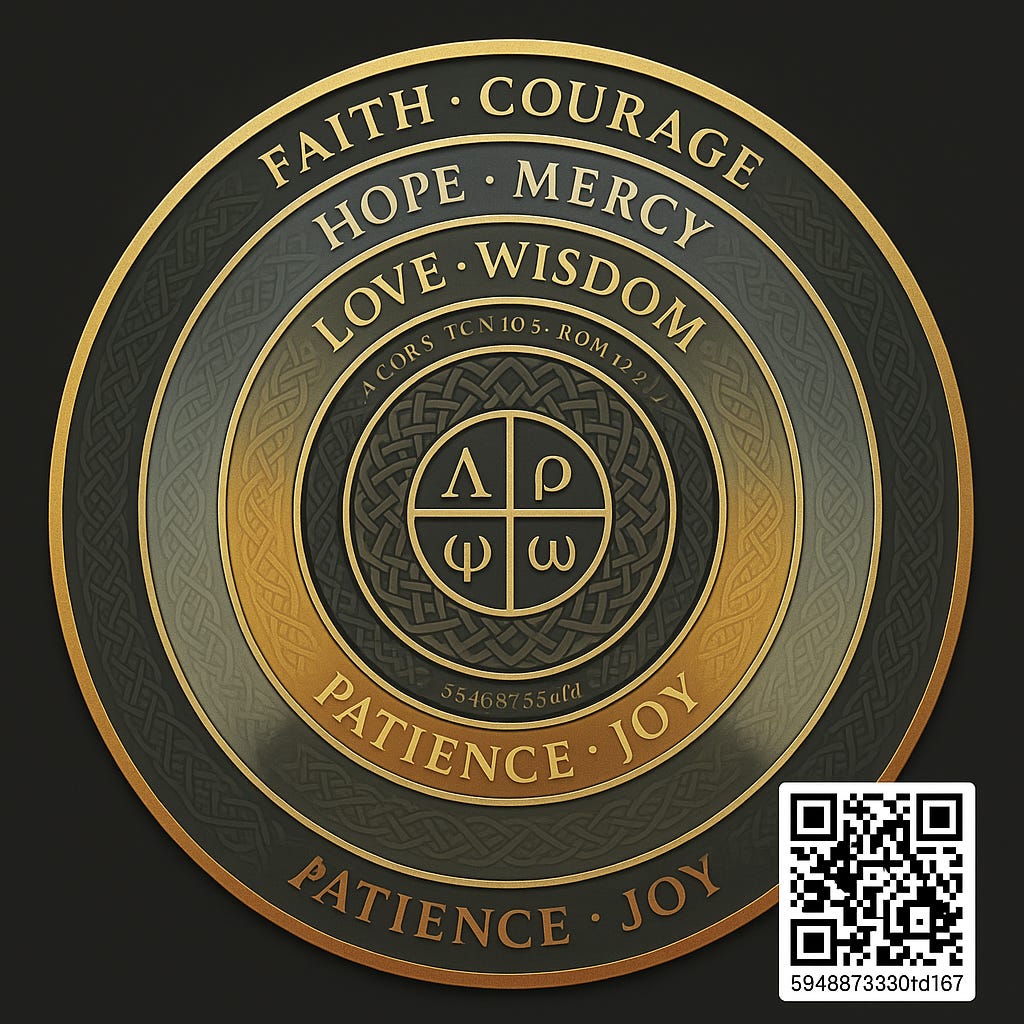Notes: Agur Weren't No Fool
Brute Truth from the King's (Mom's) Mouth
These Notes Have Note Been Edited
But this is a Gold Mine for Exegetical Understanding
Chat enjoys kicking out chart-tables that do not copy paste well. They may look like gibberish at first. If the puzzle of lining up the missing tabs is too much, scroll right past to the next bullet point
Learning to read for understanding rather than leisure is key to leveraging language modeling in favor of your study
-Feed the Robots, JMF
The Burden and the Names
Thematic Etymology in Proverbs 30–31
I. Introduction: The Scroll of the Burden
The Book of Proverbs closes not with ease but with weight.
After the ordered sayings of Solomon, two appended oracles appear—Proverbs 30 and 31—each introduced in prophetic form:
“The words of Agur, son of Jakeh, the burden (הַמַּשָּׂא) …”
“The words of Lemuel, the king, the burden which his mother taught him.”
These two units transform the wisdom collection into a quasi-prophetic revelation. The term מַשָּׂא (massaʾ)—“burden, oracle”—is the same word that begins many prophetic scrolls (Isaiah 13:1, Nahum 1:1, Zechariah 9:1). Wisdom now bears the weight of prophecy; the sayings of the wise are lifted up as the utterance of one who bears the divine word.
II. Distinct Roots, United Function
Two technical words frame these oracles:
Term Root Core Sense Function
מַשָּׂא (massaʾ) נָשָׂא (nāśāʾ) to lift, carry, bear the message—the load carried
נְאֻם (nəʾum) נָאַם (nāʾam) to utter, speak solemnly the act of declaring
Massaʾ names the thing borne; nəʾum names the voice that bears it. Together they mark Proverbs 30:1 as a prophetic “scroll-head.” The wisdom teacher is no longer a mere moralist but a vessel of revelation.
⸻
III. The Gatherer and His Cry
Agur (אָגוּר)
Root: ʾāgar = “to gather, collect.”
Sense: “Gatherer,” “Compiler,” “Collector of sayings.”
Function: A sobriquet rather than a genealogy. He is the one who gathers fragments of wisdom from earth and heaven alike.
Jakeh (יָקֶה)
Root: uncertain; possibly yqh “obedient, pious.”
Sense: “The Obedient,” “The Pious.”
Together, Agur ben-Jakeh means “The Gatherer, son of the Obedient.”
In form and meaning it parallels “Ben-Adam” (“son of man”): the archetypal seeker, obedient under burden.
IV. Ithiel and Ucal — The Wordplay of Weakness
The text continues:
“The utterance of the man to Ithiel, to Ithiel and Ucal.”
At first glance, two disciples are named. Yet the Hebrew permits a second reading when vocalized as confession rather than address.
Name/Form Root Literal Gloss Confessional Reading
אִיתִיאֵל (Ithiel) from ʾetî (“with me”) + El “God is with me” “I am weary, O God”
אוּכָל (Ucal) from yākōl (“be able, endure”) “Able, Enduring One” “I cannot endure”
The double reading is intentional.
If taken as names, Agur speaks to his pupils: “To God-is-with-me and to the Able One.”
If read as lament, he opens: “I am weary, O God; I am weary, O God, I cannot.”
The polysemy lies in the verb yākōl. Without negation it means “I am able”; with or implied negation, “I am not able.” Hebrew allows the confession to hover between the two—strength and exhaustion, capacity and collapse. The Gatherer begins his oracle acknowledging that even the wise cannot master Wisdom. The first word of his burden is weariness.
⸻
V. From Burden to Balance
This humble beginning frames the chapter’s paradoxes:
• “Surely I am more brutish than any man… I have not learned wisdom.” (30:2–3)
• “Who has ascended to heaven and come down?” (30:4)
Agur’s lament ripples through each numerical saying. The collector of wisdom admits his limits even as he catalogues the patterns of creation. The Gatherer’s strength lies precisely in confessing inability: he gathers by surrendering mastery.
VI. Lemuel the King — The Counterpart
Proverbs 31 mirrors 30 structurally and theologically.
Lemuel (לְמוּאֵל)
Root: le- “for, belonging to” + El “God.”
Sense: “Belonging to God,” “For God,” “Dedicated to God.”
Melek (מֶלֶךְ)
The simple noun “king.”
When read together: Lemuel melek = “the king who belongs to God,”
“the God-devoted king.”
Where Agur is the weary gatherer beneath the heavens, Lemuel is the king beneath God. The first oracle begins in human frailty; the second ends in royal consecration. The burden of the son is balanced by the instruction of the mother.
Thus Proverbs closes in a chiastic pair:
Oracle Speaker Theme Relation to God
30 Agur son of Jakeh Confession of human limitation “I cannot” before God
31 Lemuel the king Counsel for divine kingship “I belong” to God
VII. Thematic Nature of Names
In these final chapters, names are not biographical markers but theological signifiers:
Name Meaning Thematic Function
Agur Gatherer The sage collecting fragments of wisdom
Jakeh Obedient Source of submission to revelation
Ithiel God with me / I am weary, O God Human frailty before the divine
Ucal Able / I cannot endure The limit of human strength
Lemuel Belonging to God The consecrated ruler
Melek King Earthly authority under divine law
Together they form a miniature theology of wisdom: human weariness (Agur) answered by divine belonging (Lemuel). The Gatherer’s burden finds its resolution in the God-belonging King.
VIII. Conclusion: From Weariness to Devotion
Proverbs begins with “The fear of the LORD is the beginning of wisdom.”
It ends with two burdens: one of weariness, one of consecration.
• Agur stands as every man beneath the heavens—confessing ignorance, striving to know the Holy.
• Lemuel stands as every ruler and disciple—called to reign only insofar as he belongs to God.
The names themselves are the message:
• Wisdom is gathered only through obedience.
• Strength is found only in admitted weakness.
• Kingship is legitimate only in devotion to God.
Thus the final chapters of Proverbs transform personal names into theological sentences.
Each name is a proverb; each proverb, a name.
The book closes not with man’s triumph of understanding, but with man’s surrender to the divine Word that alone endures.






Digging for treasure, has reward. JMF has the maps.
Thank you for being so generous in your sharing.